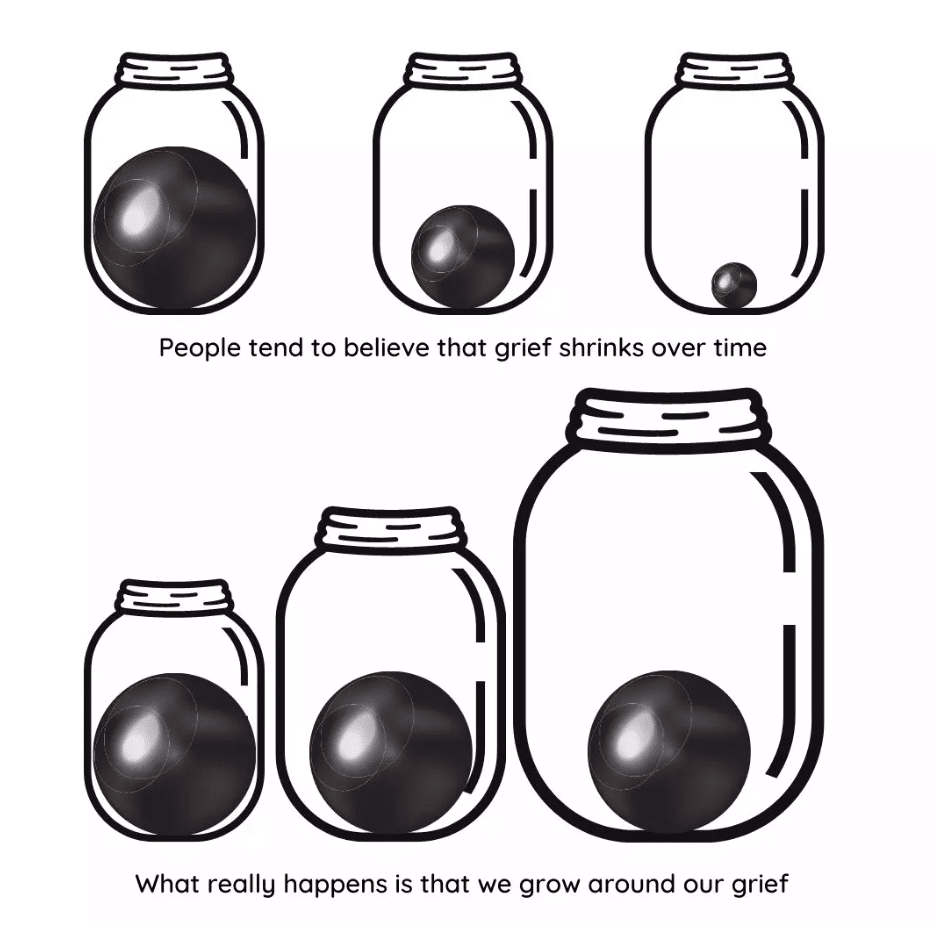The celebratory nature of this time of year encourages spending time together with family and friends. Whilst the festivities can be enjoyable, for some, it can be painful; especially if there is somebody missing at the dinner table.
A gentle blog on how you can cope this Christmas without your loved ones.
“Grief doesn’t hit us in tidy phases and stages, nor is it something that we forget and move on from; it is an individual process that has a momentum of its own, and the work involves finding ways of coping with our fear and pain, and also adjusting to this new version of ourselves, and our new normal.” Julie Samuel
The reality of Christmas and time for family and celebration doesn’t allow us to forget those who are no longer with us. This can be through loss by death, divorce, separation, or by unavoidable distance.
Taking part in joyful experiences may not feel ‘right’ without the ones absent experiencing them with us, which can bring a mixture of emotions to your day. What is important here is to be kind to yourself – grant yourself patience, compassion and allow your authentic self to feel how you feel. There is no ‘right way’ to do grief, just like there is no ‘right way’ to do Christmas this year.
Some reminders:
Take time
Christmas and any annual celebration can represent a milestone of time. Loss, especially at Christmas time, can feel enhanced and difficult whether this be your first year, fifth year or even your thirtieth year without your loved ones. Time may make things easier for some but for others, it may not. Your grief is individual to you meaning your days will ebb and flow in their own way, at their own pace. Time passed does not make your grief or feelings any less valid – they still are and on the day, they will feel the way they do.
So, make sure you go gently on be patient with yourself.
Accept all feelings, the ‘good’ and the ‘bad’
Allow yourself the space to connect and attune with your grief emotions. These may fluctuate from moment to moment as you continue to live and experience more of life. Some people’s journey through grief resonates with Lois Tonkin’s model – Growing Around Grief.
The idea of the below image with the ball (grief) in the jar (you, life) demonstrates that the ball remains but the jar grows and evolves; as your life does and will too. Grief is still there and you can learn to live a life which includes the loss.

Grief can feel painful but it’s testament to the love and gratitude that you’ve felt for someone, and that’s beautiful. It is so important in the process to not ‘avoid’ them but to allow yourself to explore and feel them. We shared a poem by Rumi that may be useful to read – The Guesthouse
It is ok if you remember and feel the positive and the negative emotions; remember, both can co-exist and this is absolutely normal. You can miss them and still enjoy your holiday.
Honour the old and the new
Last Christmas, Karen Carberry, Consultant Family Therapist wrote a blog on families and festivities. She explored family traditions and how to honour and open communication at the table.
According to culture and custom, it can help to keep the memory of a loved one present by continuing old traditions. For example, by taking part in prayer or retelling family stories.
It can be helpful as a family to co-create a new tradition together. Something new can bring rejuvenation and opportunity to create current and newer memories, as well as honouring the old. This is part of healing.
“It is important to give time for this, and perhaps talking openly as a family about what you value, and miss is one way of being open about your loss. How you honour those who are no longer with us may take place in so many ways according to culture, custom and family traditions. Allow yourself to find your own way to acknowledge your feelings and leave some room for something new.”
It is important to give time for this, and perhaps talking openly as a family about what you value, and miss is one way of being open about your loss.
Keep communication open
Like we say with eating disorder recovery, ensuring your needs and wants are met is crucial when coping with grief. If things start to feel difficult, find a trusted person you can talk to and communicate with them: do you need a time out? Do you need a hug? Do you need space?
This person will care about you and will want you to feel secure, so they will be open to listen and to ‘just be’ with you.










